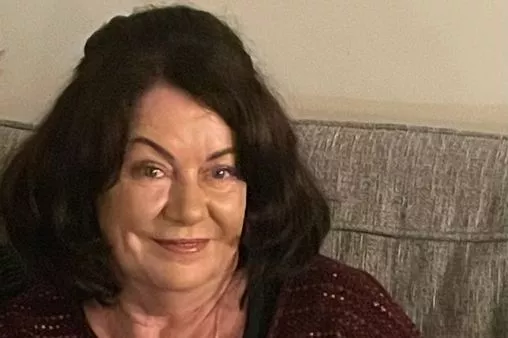Top Stories
Dublin Mother Urges Women to Recognize Ovarian Cancer Symptoms

Deirdre Fennelly, a mother from Dublin, was diagnosed with stage 4 ovarian cancer in 2021 after experiencing persistent symptoms she initially attributed to unrelated health issues. Her journey highlights the importance of awareness regarding the signs of ovarian cancer and the limitations of cervical screening in detecting this disease.
After months of discomfort, including a “very bloated tummy,” Deirdre sought medical advice but struggled to connect her various symptoms. “I would have had multiple UTIs,” she explained in an interview with RSVP Live. “On one occasion, I had five UTIs in ten months.” Despite her frequent visits to the doctor, the underlying cause remained undetected.
Her symptoms escalated, leading her to believe she was suffering from kidney stones. “I was away in the west and I had just gotten an excruciating pain in my side,” Deirdre recalled. After a lengthy visit to an emergency department, she was informed that a tumor was present on her left ovary.
The diagnosis marked a turning point in Deirdre’s life. “They discovered that not only did I have ovarian cancer, I had early stage four ovarian cancer. My chances of survival were 25%,” she stated. The emotional toll was profound, particularly as she grappled with the reality of her situation while her husband was working on their new home.
Deirdre underwent two years of treatment, which included nine weekly chemotherapy sessions followed by a nine-hour surgery where doctors removed her fallopian tube and other affected tissues. She received Hyperthermic Intraperitoneal Chemotherapy (HIPEC), a specialized treatment administered during surgery to target residual cancer cells.
“After finishing treatment, a miracle happened,” she said. “My oncologist said he could take me off all the treatment. I was completely clear and in remission.” Despite her positive outcome, Deirdre lives with the ongoing anxiety of regular scans every six months to monitor her health.
As an advocate for women’s health, Deirdre emphasizes the need for increased awareness of ovarian cancer symptoms. She noted that many women, including herself, mistakenly believe that regular cervical screenings protect them from all gynecological cancers. “There is no detection test for ovarian cancer,” she warned. “Unfortunately, one in three women mistakenly believe that cervical screenings check for all gynecological cancers.”
The Health Service Executive (HSE) identifies key symptoms of ovarian cancer, including persistent bloating, abdominal discomfort, feeling full quickly when eating, and frequent urination. Deirdre hopes that sharing her story will encourage women to pay closer attention to their bodies and seek medical attention when they notice unusual changes.
Her experience underscores the importance of holistic health assessments and better education regarding the limitations of existing screening methods. “I just feel it should be treated holistically,” she remarked, highlighting the need for comprehensive awareness among women.
Deirdre’s journey serves as a reminder of the vital need for ongoing research and funding for ovarian cancer. While the CervicalCheck campaign has made strides in addressing cervical cancer, there remains a significant gap in awareness and resources for ovarian cancer detection and treatment.
-

 Top Stories2 months ago
Top Stories2 months agoTributes Surge for 9-Year-Old Leon Briody After Cancer Battle
-

 Entertainment3 months ago
Entertainment3 months agoAimee Osbourne Joins Family for Emotional Tribute to Ozzy
-

 Politics3 months ago
Politics3 months agoDanny Healy-Rae Considers Complaint After Altercation with Garda
-

 Top Stories3 months ago
Top Stories3 months agoIreland Enjoys Summer Heat as Hurricane Erin Approaches Atlantic
-

 World4 months ago
World4 months agoHawaii Commemorates 80 Years Since Hiroshima Bombing with Ceremony
-

 Top Stories2 months ago
Top Stories2 months agoNewcastle West Woman Patricia Foley Found Safe After Urgent Search
-

 Top Stories4 months ago
Top Stories4 months agoFianna Fáil TDs Urgently Consider Maire Geoghegan-Quinn for Presidency
-

 World4 months ago
World4 months agoGaza Aid Distribution Tragedy: 20 Killed Amid Ongoing Violence
-

 World4 months ago
World4 months agoCouple Convicted of Murdering Two-Year-Old Grandson in Wales
-

 Top Stories3 months ago
Top Stories3 months agoClimbing Errigal: A Must-Do Summer Adventure in Donegal
-

 Top Stories3 months ago
Top Stories3 months agoHike Donegal’s Errigal Mountain NOW for Unforgettable Summer Views
-

 World4 months ago
World4 months agoAristocrat Constance Marten and Partner Convicted of Infant Murder









